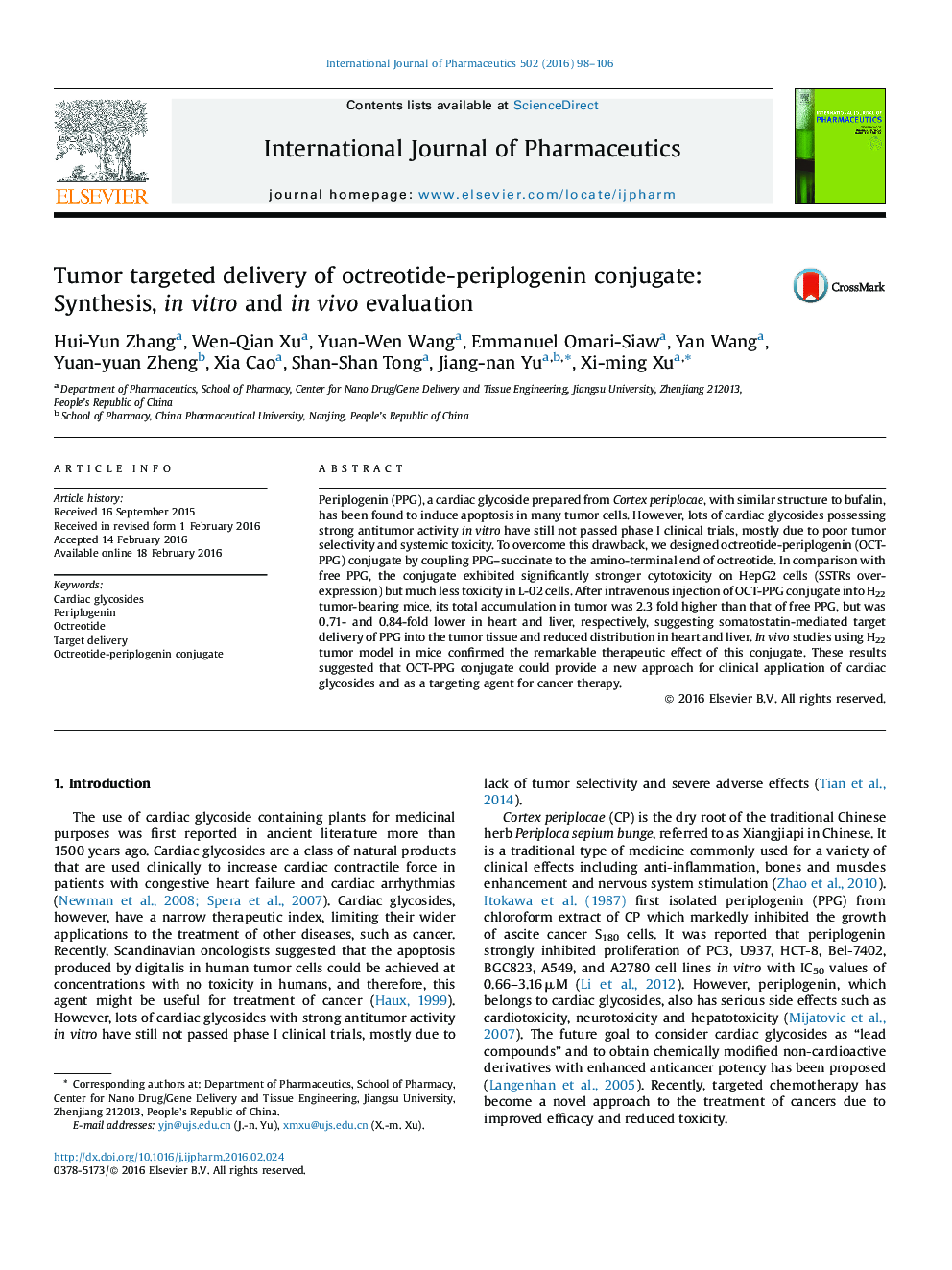| Article ID | Journal | Published Year | Pages | File Type |
|---|---|---|---|---|
| 2501050 | International Journal of Pharmaceutics | 2016 | 9 Pages |
Periplogenin (PPG), a cardiac glycoside prepared from Cortex periplocae, with similar structure to bufalin, has been found to induce apoptosis in many tumor cells. However, lots of cardiac glycosides possessing strong antitumor activity in vitro have still not passed phase I clinical trials, mostly due to poor tumor selectivity and systemic toxicity. To overcome this drawback, we designed octreotide-periplogenin (OCT-PPG) conjugate by coupling PPG–succinate to the amino-terminal end of octreotide. In comparison with free PPG, the conjugate exhibited significantly stronger cytotoxicity on HepG2 cells (SSTRs overexpression) but much less toxicity in L-02 cells. After intravenous injection of OCT-PPG conjugate into H22 tumor-bearing mice, its total accumulation in tumor was 2.3 fold higher than that of free PPG, but was 0.71- and 0.84-fold lower in heart and liver, respectively, suggesting somatostatin-mediated target delivery of PPG into the tumor tissue and reduced distribution in heart and liver. In vivo studies using H22 tumor model in mice confirmed the remarkable therapeutic effect of this conjugate. These results suggested that OCT-PPG conjugate could provide a new approach for clinical application of cardiac glycosides and as a targeting agent for cancer therapy.
Graphical abstractFigure optionsDownload full-size imageDownload high-quality image (165 K)Download as PowerPoint slide
